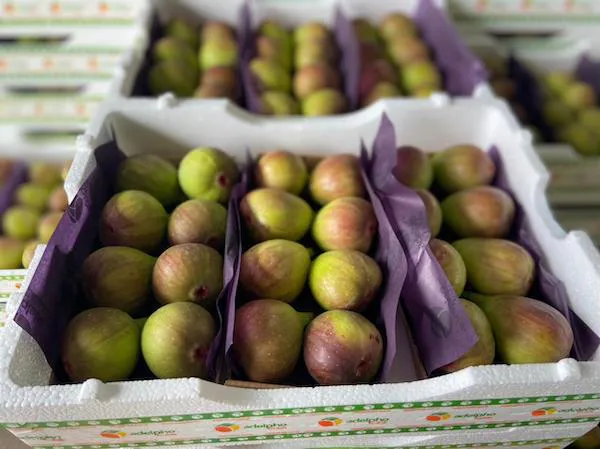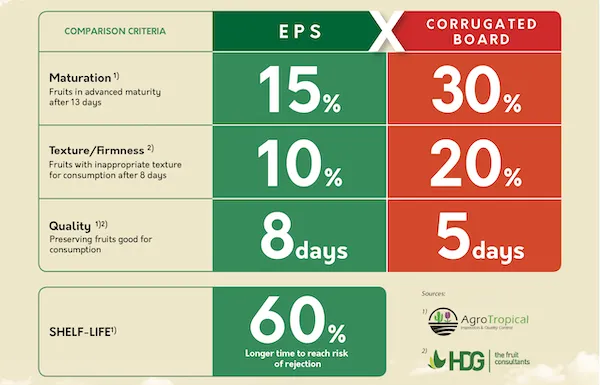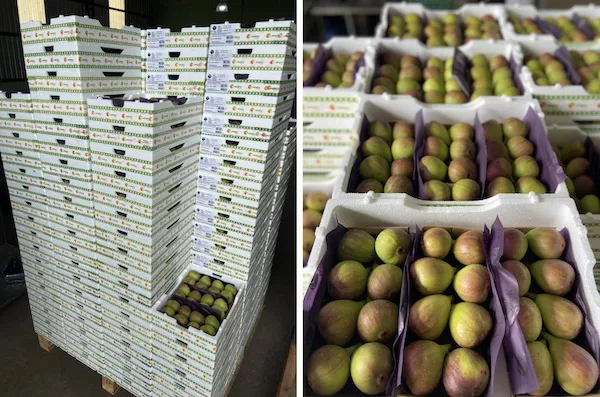Brazilian fruit production for the foreign market remained steady in 2020 and reached a milestone of more than 1 million exported tons, a 6% growth over the previous year. The sector grossed US $875 million, 3% more than in 2019. With an ever increasing share in this sector, Termotécnica has recorded increasing demand in conservers for fresh fruit exports such as Tahiti limes, grapes, mangos and more recently, in early 2021, also figs. Cargo flights of fresh figs are being shipped to Europe and Canada in DaColheita EPS conservers.

Luis Christofoli, Sales Director of Adelpho Frutas, headquartered in Valinhos, responsible for the export of figs, points out the advantages of DaColheita EPS conservers over other types of packaging. “What we noticed early on by using EPS conservers for fig packing is the appearance. The fruits look cleaner and more sanitized. Another advantage you feel is in cold storage: the fruits cool much faster than in cardboard packaging, which translates into greater durability and quality throughout storage and transport. In addition, EPS conservers are lighter. And with the dollar exchange rate and air freight at record highs, this characteristic ensures greater savings for the importer,” attests Christofoli.
Developing EPS conserver solutions under the DaColheita brand (FarmFresh in the international market), Termotécnica has been working with partner producers and traders to contribute toward expanding the market share for Brazilian fruits in foreign markets. According to Termotécnica’s General Manager, Nivaldo de Oliveira: “Our conserver solutions together with our pallets, both EPS, provide up to 70% reduction in the total cargo weight compared to other types of packaging, in addition to significant air freight savings”.

To serve extremely demanding markets, such as Canada and European countries, Brazilian exporters are prioritizing quality over quantity. Export fruit producers seek post-harvest care in addition to excellence in all stages of production. Premium-type export fruits require extra special care, from selection at harvest time until ready for consumption. With this in mind, choosing the right packaging is extremely important for thermal maintenance throughout the process and guarantees a quality product at the POS.
With the increasing concern regarding health safety, more and more consumers in developed countries want products ready for consumption, to avoid handling as much as possible. “Our conservers have this appeal of cleanliness, lightness, practicality and design to display fruits at the POS or for delivery by e-commerce,” states the Termotécnica’s director.
Another important issue when serving the foreign market is the concern with sustainability. For this reason, since it began working with fruit exporters, Termotécnica has been a member of the Global Packaging Alliance, a global partnership for packaging recycling.

Transport and storage tests conducted with figs using DaColheita conservers concluded that they’re the best option when compared to corrugated board boxes, preserving the fruit’s freshness much longer.  For more information:
For more information:
Thiago Hess dos Santos
Termotécnica
Tel: +55 47 9 8818 1452
Email: marketing@termotecnica.com.br
www.termotecnica.ind.br
